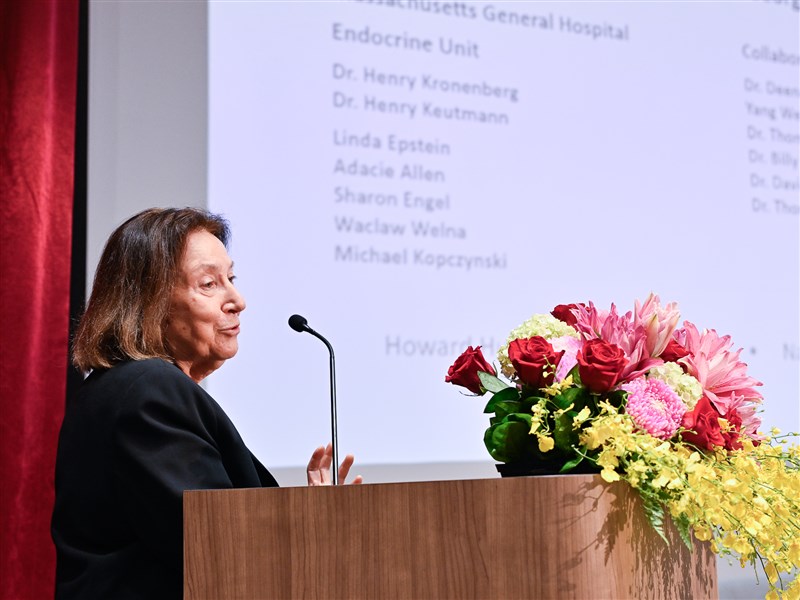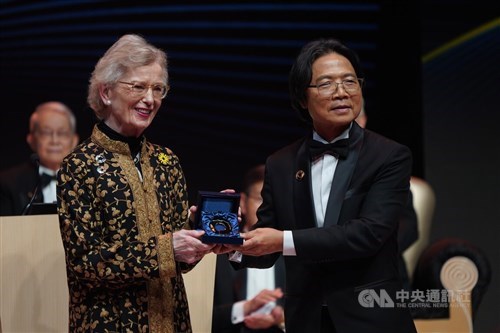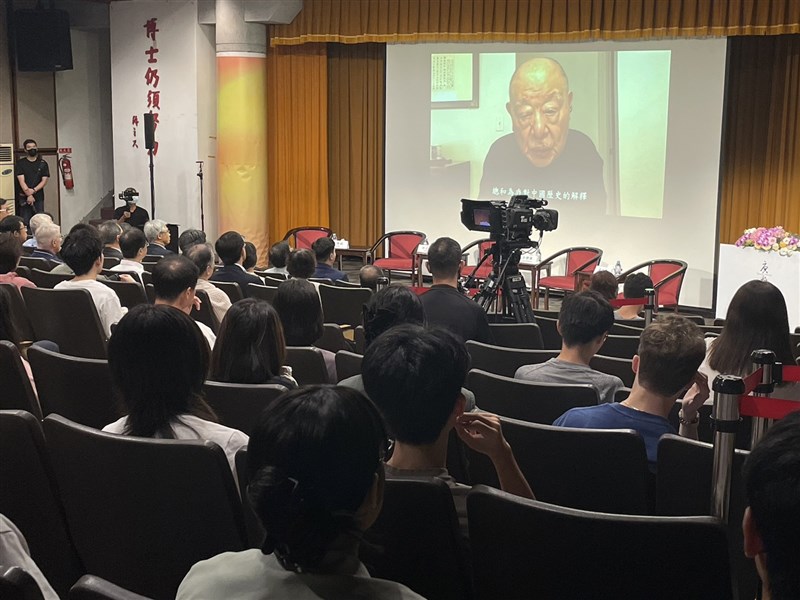TANG PRIZE / Pioneering chemist contributes to sustainability with 'Lego building'
06/18/2024 06:40 PM
Being a "molecular architect," one can dictate what structures they want to make, "like building Lego," and most importantly, use them for the end of sustainability applications, said 2024 Tang Prize in Sustainable Development awardee Omar M. Yaghi.
(Full text of the story is now in CNA English news archive. To view the full story, you will need to be a subscribed member of the CNA archive. To subscribe, please read here.)
More in TANG PRIZE
-
![Drugs treating diabetes, obesity can do more: Tang Prize laureates]() Drugs treating diabetes, obesity can do more: Tang Prize laureatesSvetlana Mojsov and Jens Juul Holst, two of the laureates of the 2024 Tang Prize in Biopharmaceutical Science, said at a forum in Taichung on Tuesday that the GLP-1-based drugs their research spawned could go beyond managing diabetes and obesity.10/01/2024 08:52 PM
Drugs treating diabetes, obesity can do more: Tang Prize laureatesSvetlana Mojsov and Jens Juul Holst, two of the laureates of the 2024 Tang Prize in Biopharmaceutical Science, said at a forum in Taichung on Tuesday that the GLP-1-based drugs their research spawned could go beyond managing diabetes and obesity.10/01/2024 08:52 PM -
![Tang Prize winner lauds Taiwan implementation of human rights covenants]() Tang Prize winner lauds Taiwan implementation of human rights covenantsFormer Irish President Mary Robinson on Monday praised Taiwan's efforts to incorporate international covenants on human rights into its domestic law despite not being a signatory.09/30/2024 08:58 PM
Tang Prize winner lauds Taiwan implementation of human rights covenantsFormer Irish President Mary Robinson on Monday praised Taiwan's efforts to incorporate international covenants on human rights into its domestic law despite not being a signatory.09/30/2024 08:58 PM -
![Historian shares research into ancient Chinese myth at Tang Prize forum]() Historian shares research into ancient Chinese myth at Tang Prize forumRenowned Taiwanese-American historian Hsu Cho-yun (許倬雲) on Monday said his work regarding the ancient Chinese myth Da Yu (大禹) was a successful example of integrating social science methodologies into historical research that helped him win the 2024 Tang Prize in Sinology.09/30/2024 01:52 PM
Historian shares research into ancient Chinese myth at Tang Prize forumRenowned Taiwanese-American historian Hsu Cho-yun (許倬雲) on Monday said his work regarding the ancient Chinese myth Da Yu (大禹) was a successful example of integrating social science methodologies into historical research that helped him win the 2024 Tang Prize in Sinology.09/30/2024 01:52 PM
Latest
-
Politics
Lawmaker released on NT$1 million bail amid multiple probes
02/13/2026 10:05 PM -
Society
Taiwan allows import of spinal cords from U.S. cattle 30 months or younger
02/13/2026 09:59 PM -
Business
1,811 industrial products exempt from U.S. tariffs: Economics minister
02/13/2026 08:56 PM -
Society
Taoyuan airport braces for record daily passenger traffic as LNY starts
02/13/2026 08:35 PM -
Business
Taiwan's pig farmers urge enactment of bills to enforce origin labels
02/13/2026 08:32 PM


